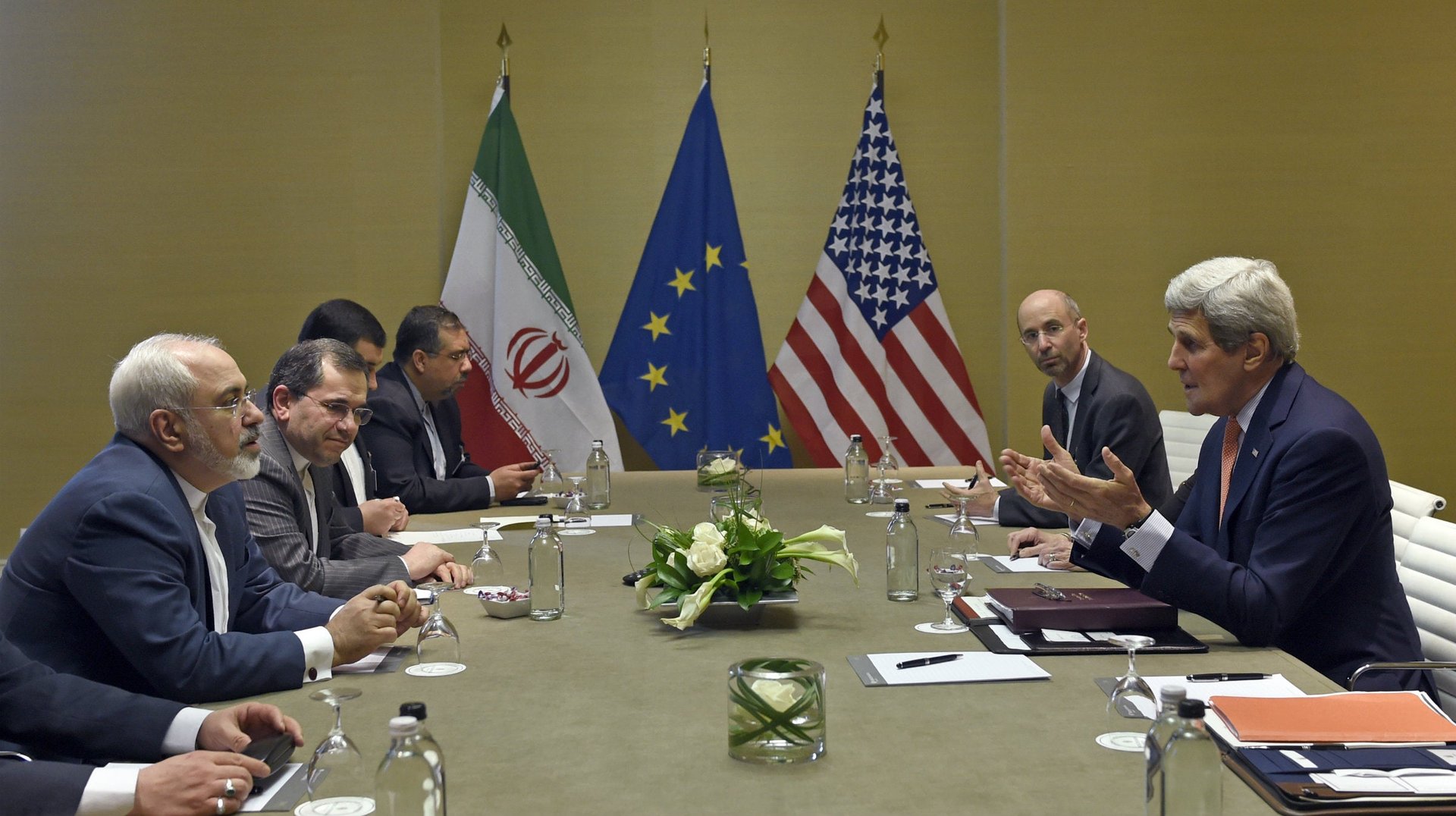After years of talks, an Iran nuclear deal has been signed
Updated at 7:45am ET


Updated at 7:45am ET
It has finally happened. Iran and six world powers have reached a deal to lift sanctions that have been in place for 12 years, in exchange for the nation’s agreement to limit its nuclear program.
Iran’s civil nuclear infrastructure will remain intact, sanctions against banks and exports will be lifted, and an arms embargo removed, to be replaced with five-year restrictions on arms-buying. In return, “under no circumstances will Iran ever seek, develop or acquire any nuclear weapons,” the agreement states. (Read the full agreement here.)
“No one ever thought it would be easy. Historic decisions never are,” read a joint statement from EU foreign policy chief Federica Mogherini and Iranian foreign minister Javad Zarif:
We know that this agreement will be subject to intense scrutiny. But what we are announcing today is not only a deal but a good deal. And a good deal for all sides—and the wider international community.
Key points of the deal include:
- Termination of all EU nuclear-related economic and financial sanctions.
- Opening of Iranian bank branches in EU member states, and financial support of EU trade with Iran.
- Lifting US sanctions on doing business with Iranian banks and removing the ban on transactions in Iranian currency.
- The US can buy Iran’s petroleum products and carpets, and sell Iran commercial passenger aircraft.
- Limitations on Iran’s uranium enrichment and uranium enrichment-related activities, including on research and development for the first eight years.
- The redesign and rebuilding of a “modernized heavy water research reactor” in Arak solely for “peaceful nuclear research.”
- A “long-term” IAEA presence in Iran that includes the monitoring of uranium ore concentrate produced by Iran for 25 years.
Earlier today, the International Atomic Energy Agency (IAEA) and Iranian officials released a “roadmap” that set an August 15 deadline for Iran to explain in writing all outstanding “issues,” and a December 15 deadline for “final assessment on the resolution of all past and present outstanding issues.”
The agreement is expected to usher in a new era of dealmaking with Iran, particularly for Western oil companies, and has already driven oil prices down by nearly 2% today, and about 10% so far this month:
Even before the details of the deal were announced, it was being heralded on social media as a triumph of diplomacy over war-mongering:
US president Barack Obama in Washington noted in that the deal “achieved something that decades of animosity has not.” He welcomed a “robust debate in Congress,” but pledged to veto any attempt by lawmakers to block the implementation of the deal. “This deal offers an opportunity to move in a new direction, we should seize it.”
Soon after Obama delivered his statement, Iranian president Hassan Rouhani delivered an address from Tehran. The deal resolves an “unnecessary crisis,” he said, saying that the sanctions imposed on Iran were “never successful.” The agreement marks the end of “injustices” against Iran and the beginning of a “new chapter” in international cooperation.
But an Israeli cabinet minister said the deal gave Iran a “license to kill,” while Israel’s deputy foreign minister called it “a capitulation of historic proportions by the west to the Iran-led axis of evil.”
At the press conference unveiling the deal in Vienna, some journalists brought champagne. After the Mogherini-Zarif statement was read out, in English and Persian, there was a round of applause.